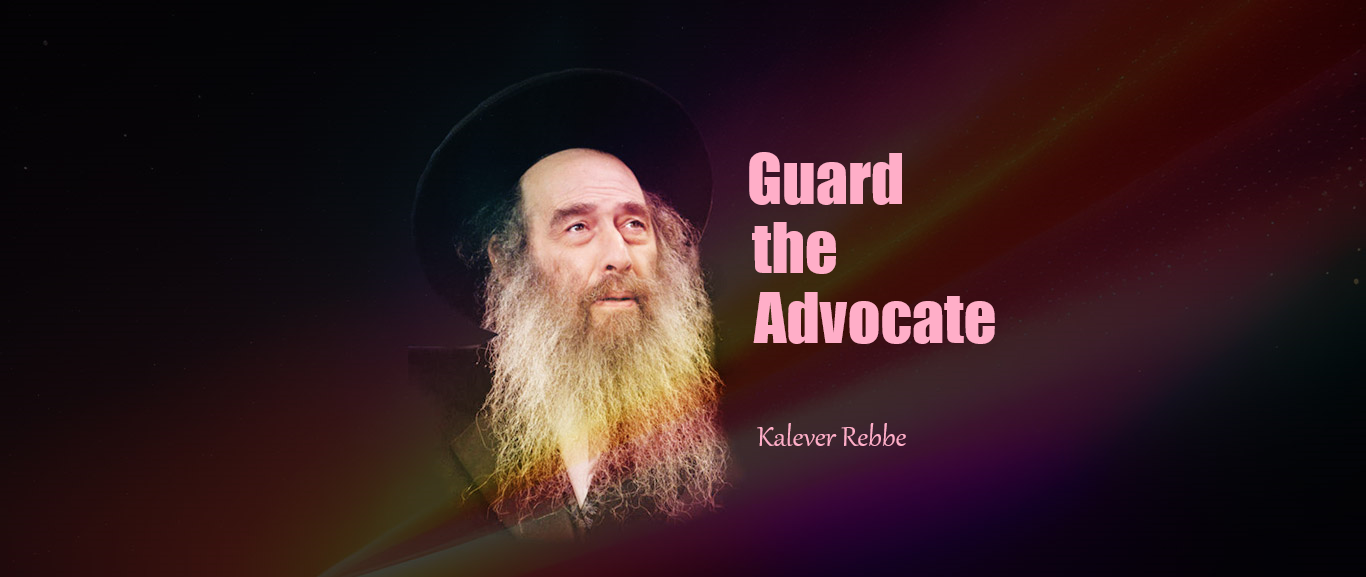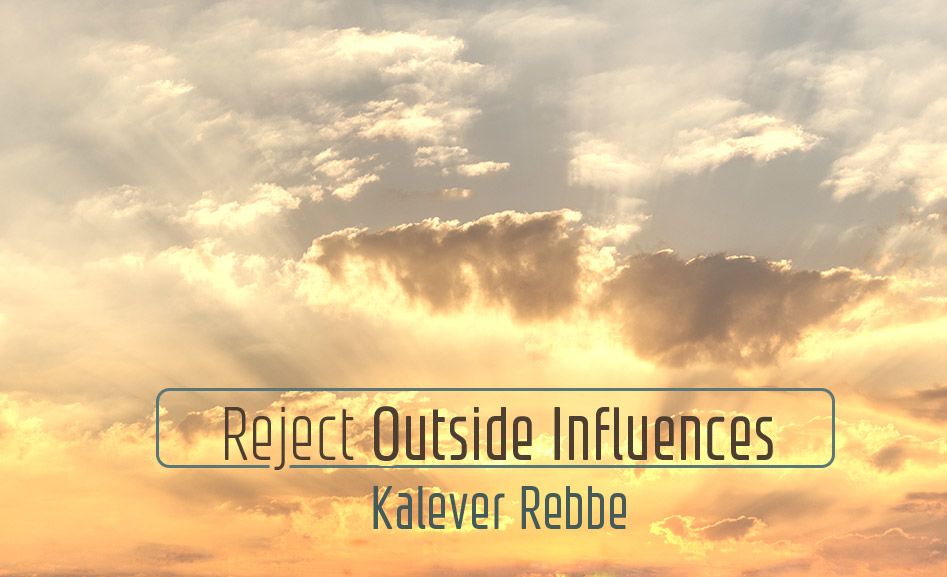
Guard the Advocate
Do you want your prayers to be answered favorably? The Kalever Rebbe gives tried-and-true advice. Guard it!

“These are the numbers of the Mishkan, the Mishkan of the Testimony.” (Shemot 38:21)
Protecting Your Power of Speech
R’ Avraham Abish of Frankfurt was traveling from town to town by carriage. As they approached a certain city, the wagon driver suddenly remembered that it was a non-Jewish holiday and feared it might be dangerous to pass through the non-Jewish city. He suggested that they take a detour through the fields instead.
However, R’ Avraham replied, “The side road is rough and full of stones, which will cause unnecessary hardship for the horses. I would rather travel through the city. There is no need to worry about the non-Jews. I am praying that by the time we reach the city’s streets, a fire will break out in their church, keeping them too busy to even notice us. We will be able to pass through peacefully and safely.”
The wagon driver trusted the Rebbe’s words, and they continued into the city. Just as R’ Avraham had predicted, as they entered the main street, the church caught fire. The townspeople cried out, “Fire! Fire!” and, in their panic, paid no attention to the travelers, allowing them to pass through undisturbed.
The driver stared at the R’ Avraham in amazement. Sensing his astonishment, R’ Avraham said, “Listen, this is not such a miracle. All my life, I have been careful never to defile my tongue with falsehoods or improper speech. Because of this, when I speak, Heaven fulfills my words. This idea is hinted at in the verse: ‘He shall not profane his word; whatever proceeds from his mouth, he shall do’ (Bamidbar 30:3). This means that when a person guards his speech, the Almighty ensures that his words come true.”
He then added, “You, too, can attain this if you are careful to guard your tongue.”
This principle is explicitly stated in Sefer Chassidim (Siman 582) that says, “A person should not speak unless he knows that it is the will of the Creator. Then, ‘You will decree a thing, and it will be established for you’ (Iyuv 22:28).”
The Shlah HaKadosh (Sha’ar HaOtios, Shetika) writes that this was the greatness of the early sages — their prayers were answered because they were careful not to defile their mouths with idle chatter or other impure speech. As a result, their prayers were pure and brought divine pleasure, awakening Mercy from above.
Delayed Prayers
On the other hand, one who corrupts his speech causes his prayers not to be accepted properly. As explained in the Zohar HaKadosh (Parshat Pekudei, 249b), that when a person utters forbidden words, there are specific angels that delay his prayers from ascending to the Kisei HaKavod for forty days.
Based on this, the Chafetz Chaim explained (Sha’ar HaZechira, Ch. 7) why the Torah states about a leper (Metzora), “He shall call out, ‘Impure, impure!'” (Vayikra 13:45). Chazal (Shabbos 67a) interpret this as requiring the afflicted person to inform others of his suffering so they will pray for him. Since leprosy comes as a punishment for lashon hara, the Metzora’s own prayer is not accepted in Heaven. He therefore needs others to pray on his behalf.
R’ Meir of Premishlan illustrated this idea with a parable: If a person prepares a meal fit for a king but serves it in a filthy dish, the food becomes unappealing and unfit to eat. If such a dish were presented to the king, he would surely reject it.
In the same way, when a person speaks holy words, his mouth must be free from impure speech. Otherwise, even if the words are sacred, they will not be accepted in Heaven.
The Advocate
The Yitav Lev (Parashat Metzora) provides another parable:
Some people rebelled against the king but later regretted their actions and wished to seek his forgiveness. Ashamed to approach him directly, they sent an intermediary to plead on their behalf before they presented themselves. However, this could only succeed if the intermediary himself was loyal to the king. If he, too, had rebelled, their chances of reconciliation would be lost.
The analogy is clear. No one is perfect. Everyone is flawed and “there is no tzaddik on earth who does only good and never sins.” Yet when people do teshuvah, they can seek forgiveness by saying, “Forgive us for we have sinned,” through their speech and prayers. The mouth serves as their advocate before Hashem.
However, this will only work if their power of speech is pure. If they have sinned with their speech — through slander, gossip, or falsehood — then their very advocate, their ability to speak, has also rebelled against the King. Who, then, will intercede on their behalf? Their hope is lost, and the gates to the King remain closed.
Therefore, a person must first commit to guarding his speech from any infractions. Then, even if he has sinned with other parts of his body, he will still be able to return and draw close to the King through the advocate of his purified speech.
Fit To Testify
This idea is alluded to in the name Mishkan HaEidut—”The Tabernacle of Testimony.” The Mishkan was a place designated for those who are fit to testify—truthful and upright individuals. Those who speak falsehoods and improper speech are disqualified from giving testimony. Since people come to the Mishkan to daven, they must guard their speech so that their prayers will be accepted.
***
The Kalever Rebbe is the seventh Rebbe of the Kaalov Chasidic dynasty, begun by his ancestor who was born to his previously childless parents after receiving a blessing from the Baal Shem Tov zy”a, and later learned under the Maggid of Mezeritch zt”l. The Rebbe has been involved in outreach for more than 30 years and writes weekly emails on understanding current issues through the Torah. Sign up at www.kaalov.org.











Tell us what you think!
Thank you for your comment!
It will be published after approval by the Editor.